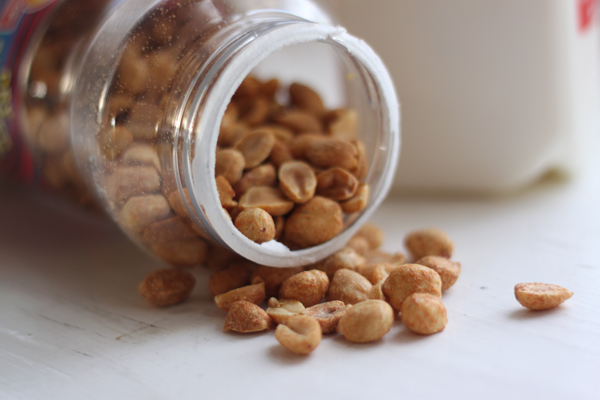
Beware of the heart-shaped box: for some students, these confections can be lethal.
Heather Hewett, associate professor of English and Women’s Studies, explores the subject of allergies in “When Valentine’s Day is dangerous for kids,” her recently published article on CNN.
“It’s an opinion essay arguing that we need to make schools safe for kids with food allergies,” said Hewett.
She said her inspiration came from the death of 7-year-old Ammaria Johnson in January. Johnson died of an allergic reaction to a peanut. Her Chesterfield, Va. school did not give her any medication.
Ammaria’s death could have been prevented by epinephrine, a form of adrenaline, Hewett said. She said the adrenaline would immediately treats the effects of anaphylaxis, which include hives and breathing difficulties.
While researching this topic, Hewett interviewed sources and brought herself up-to-date on the pending legislation such as the School Access to Emergency Epinephrine Act, which currently a bill in committee in Congress. The new bill encourages states to pass laws introducing incentives for schools to stock epinephrine for all students not only those who have a prescription.
Hewett said she drew from her own experiences as a mother of a child with life-threatening food allergies. Hewett and her family are well-acquainted with epinephrine as it is administered to her daughter by an automatic injector and sold under the brand names of Twinject or EpiPen. Hewett said her daughter has needed multiple shots of epinephrine in four emergencies, and those shots saved her life.
Hewett’s research suggests the most common allergies are peanuts, milk, shellfish and tree nuts. Chocolate often has milk or nuts in it and can be cross-contaminated. Studies have also shown that up to 25 percent of all epinephrine administrations at school involve someone with a previously unknown allergy.
Recently, Hewett also spoke with fourth year-BFA graphic design major Racheal Kubikowski, who is raising awareness about food allergies at New Paltz.
“The most important thing I got from Hewett’s article was that the biggest issue is people not knowing about food allergies, and then not reacting properly when someone has an attack,” Kubikowski said.
Kubikowski is currently researching to see what options the school offers to students who suffer from severe food allergies. She is also currently working on designing a series of posters that she said she hopes to hang in Hasbrouck Dining Hall and around the Student Union Food Court.
Hewett said that food allergies are a hugely important issue that needs to be addressed both in terms of policy as well as awareness and training. It is true, not only for children, but also for students in universities as well.
